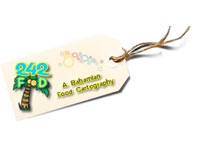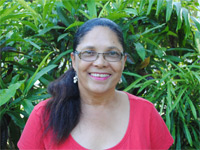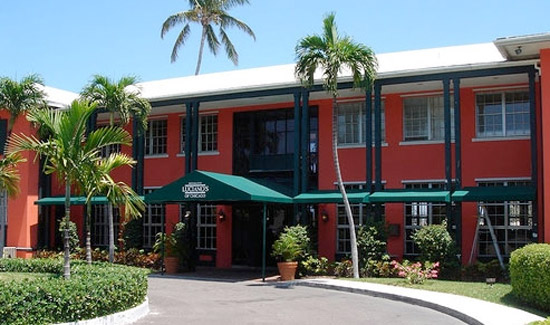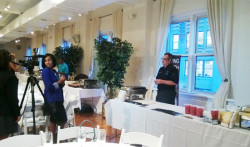
NASSAU — When American graduate student Hilary Booker took on an agricultural sustainability project under the Bahamas Agricultural & Industrial Corporation three years ago, she thought she would only spend a few months on New Providence.
But years later, not only has she continued to build her initial project – a sustainable agriculture training and education program at the Simpson Penn Center for Boys – but she has also been working towards drafting a comprehensive examination of food sovereignty in The Bahamas to serve as the impetus for a nation-wide conversation about our cultural attitudes towards food and agriculture.
“I’ve always had a very strong orientation towards justice and social justice, and I’ve also always had a strong environmental consciousness,” said Booker. “For my whole life I’ve always recognized there’s a connection between suffering in the world and environmental degradation.”
“Agriculture is the basis of the entire system of genocide of native peoples and then degradation of land and then slavery,” she continued. “So I look at those connections between colonization of people and places and land at multiple levels.”
Her blog, 242Food – which goes live on Monday at 242food.com – will serve as what she hopes will become a multimedia platform to examine the complex and significant history of agriculture in The Bahamas and its effects today. To start it all off, Booker will share her five-part dissertation to complete her PhD in Environmental Studies at Antioch University in New England.
The five-part dissertation – examining decolonization; food and agricultural policy; health and wellness; environment and climate change; and cultural healing – will bring a holistic understanding to the way we live now so we can begin the process of decolonization, says Booker, especially around this time of Bahamian Independence and Emancipation Day.
“The Bahamas especially isn’t very independent. I mean politically, perhaps, but it’s certainly not independent economically,” she said. “It seems that generally people feel that if it’s produced elsewhere, it’s better. And I think that this is a remnant of colonization.”
“It is ridiculous and contributes to economic colonization and imperialism rather than a sense that you can do it yourself,” she continued. “The Bahamas has a $500 million food import bill. What if half of that money could stay in the country?”
“I’m not saying everyone needs to produce every single thing that they need – but I do think that if you have a sense of pride in who you are as a people and what you’re able to achieve, then you’re probably going to be more likely to do it. I think everyone is part of the solution.”
Indeed, Booker hopes that sharing these essays will just be the start needed for a national conversation on the blog with guests responding with their own essays, videos, even artwork and poetry. But most importantly, she hopes it gives farmers a chance to voice their personal experience. After all, she points out, the problem with encouraging local sustainable agriculture lies also in a lack of communication with those making food policy.
It’s also the reason she’s working with the Chamber of Commerce on an Agribusiness Working Group, which works to identify some of these limitations and problems, as well as to advocate for policy and education in these economic sectors.
The blog 242Food will draw upon these experiences, as well as interviews and profiles of Bahamian groups working towards food sovereignty, which is the idea that food should be in the hands of local people rather than subject to international market forces. It is through understanding and supporting these groups that the decolonization of agriculture can begin.
“The biggest problems with the food system – with agriculture and pretty much everything else – is trust and communication,” said Booker. “You can say it’s trade, you can say it’s policy, but at the end of the day it’s trust and communication which again relates back to the legacy of colonialism.”
“Food sovereignty is not just about agriculture – a bunch of people growing things. It’s about a system of sustainability and it’s about changing the way you look at an economy,” she continued. “And economy is not a way to produce stuff to be consumed in order to get money – an economy is how people’s gifts and work can be shared and used effectively for the betterment of society.”
For more information check out 242Food at www.242food.com or find them on Facebook and Twitter.
By Sonia Farmer
The Nassau Guardian
Our Bahamas Food channel has more articles and information on Bahamas Food & Culture.



